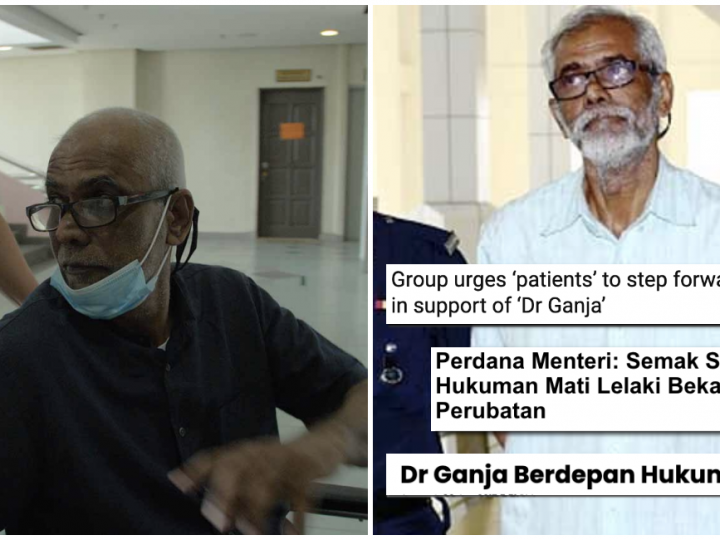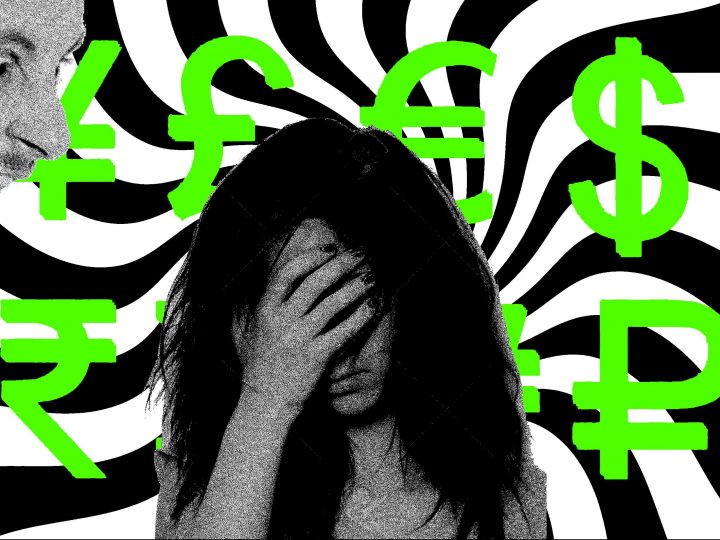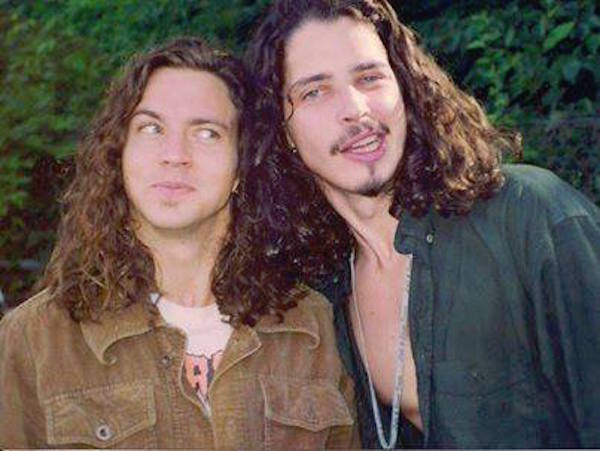Jobless, Alone & Depressed: M’sian Youths Tell Us Why They Use More Drugs During The Pandemic
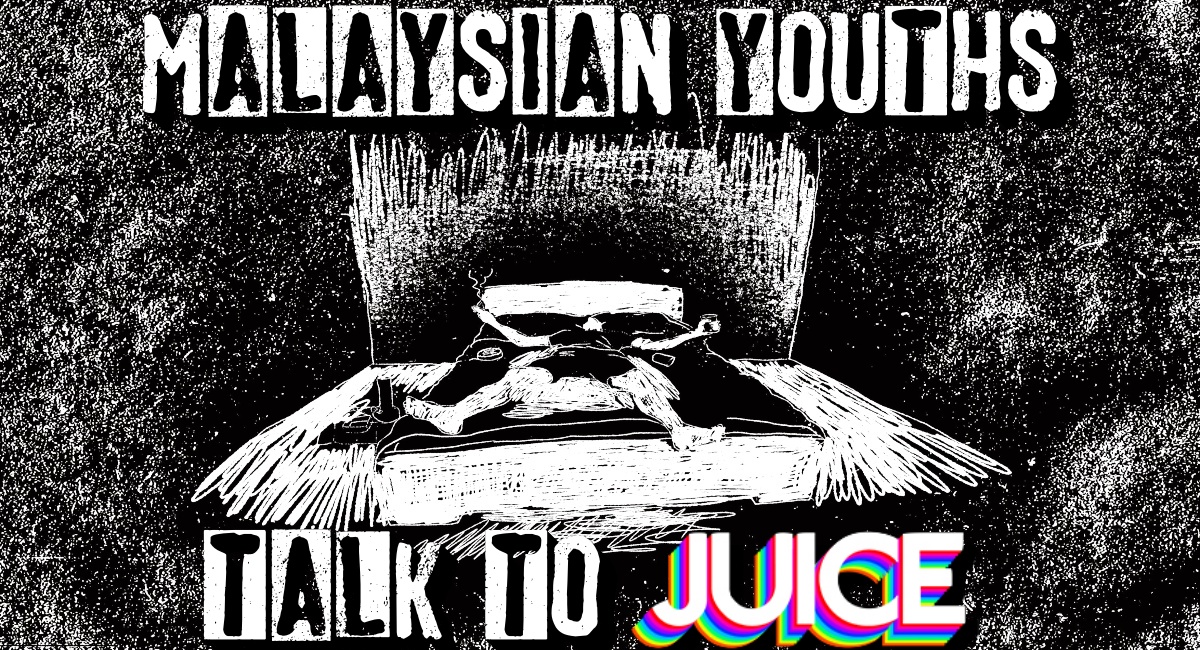 Thirsty for JUICE content? Quench your cravings on our Instagram, TikTok and WhatsApp
Thirsty for JUICE content? Quench your cravings on our Instagram, TikTok and WhatsApp
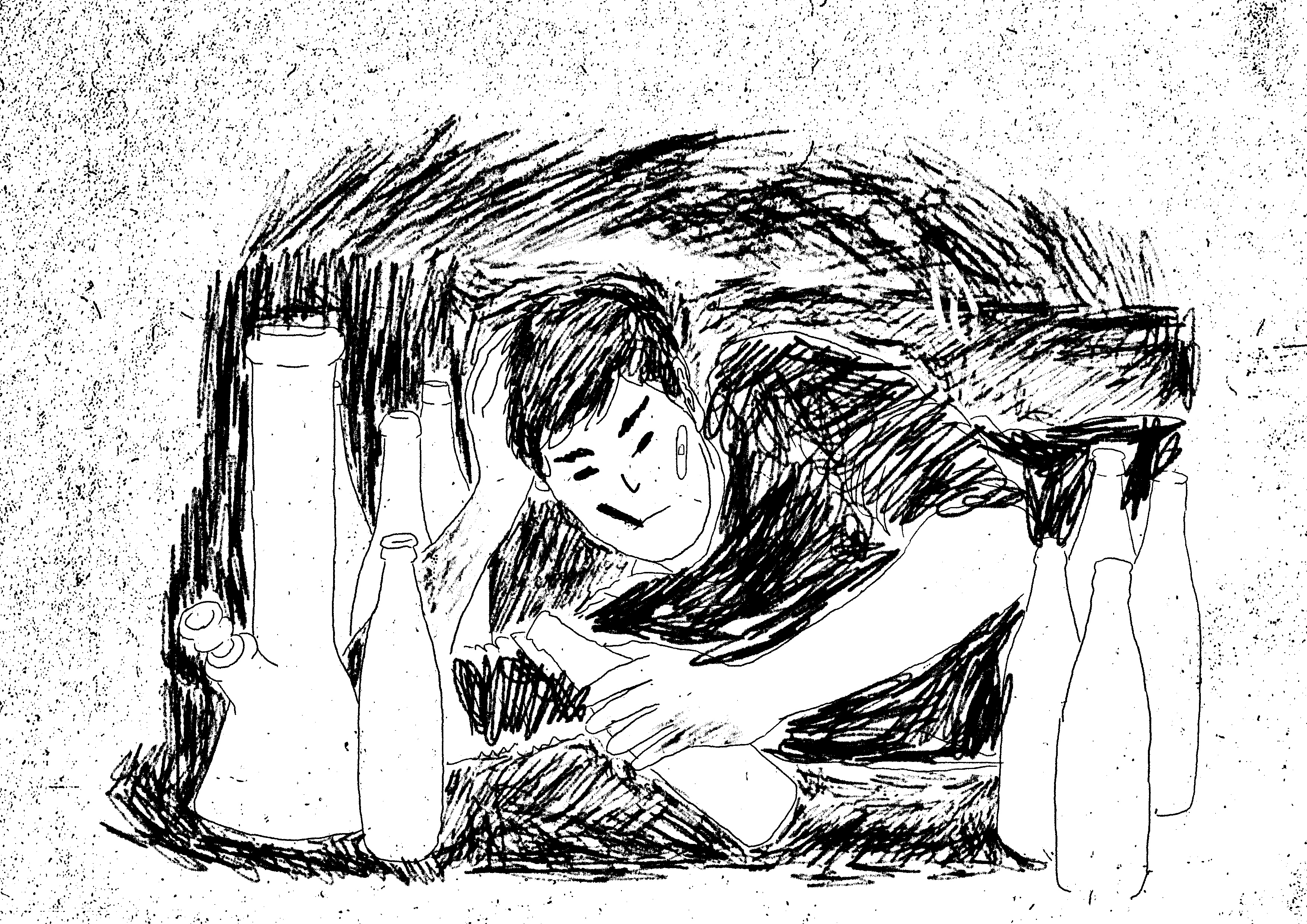
The feeling of emptiness and dread is part and parcel of our seemingly endless daze during CMCO. When days begin to dissolve into one another in a constant loop, many people seek an escape from the routine.
Despite Malaysia’s ongoing war on drugs, substances still remain one of the sources of escapism for Malaysians. During this especially difficult time, the number of people using drugs and alcohol as a coping mechanism has skyrocketed substantially.
As a result of mental illness and ultimately, loneliness, mental health hotlines have also witnessed an upsurge in demand.

As a youth myself, I find the topic of drugs and alcohol to be enshrouded within a fog of stigma and fear. Voices of youths who experience addiction and misuse of substances have been muted and downplayed by authorities who take a hardline stance whereby any sort of drug use under any circumstance is considered bad and punishable.
In order to understand the true severity of the situation during CMCO specifically, I interviewed several people of various age groups, careers and family histories to identify the reason why they subjected to drugs and alcohol as well as to delve deeper into why Malaysians feel silenced when it comes to this issue.
Below is a series of vignettes to paint the picture of substance dependency, loneliness, inadequacies in education as well as the taboos that contribute to it. All names have been changed for safety and privacy reasons.
Here are the voices of Malaysian youths…
How did you first feel when it was announced that CMCO would be extended?
Upset and frustrated to say the least, readjusting to living in isolation took a massive toll on respondents.
When most Malaysians were panic buying groceries, respondents were stocking up on drugs, knowing that roadblocks and inhibited interstate travel could potentially lead to a cut in their supply.
For respondent, Bungo Lale, trusted plugs lived far away and it was too risky to go the extra mile just for the high. He resorted to a tolerance break but realised that life was too unbearable at home for him to sustain it. Going from RM50 to RM300 per purchase, he realised that he needed drugs to help him cope.

Respondent Sting called it “cabin fever” and the only way to escape was through drugs and alcohol. Being a performer, creative catharsis was important. With a mind brimming with ideas yet nowhere to pour it into, he felt repressed during this time. From performing 20 shows to doing 2 small gigs, the only way for him to keep from overthinking was to immerse himself in the occasional drink and marijuana.
When it comes to respondent, Anastasia, she used to find it recreational. But now, her body alerts her of its absence and she feels like there’s something wrong with her. With each passing day and hour of being awake, she immerses herself in substances, especially drugs and cigarettes. It’s as if she feels the need to exhale, like there’s something heavy in her chest that she needs to expel.
When did you realise that you were building a dependency towards drugs and alcohol?

Prior to the pandemic, stress was often released with leisurely activities, which are now rare due to SOPs, such as watching films in theatres and taking a short drive to the nearest amusement park for thrills. Now, the closest release in their grasp is a stick of rolled herbs or a tall, cold glass of alcohol.
“Booze is just borrowing tomorrow’s happiness for today.” – Bungo Lale
For respondent, Howdy, the MCO was the biggest enabler for him to not stop grabbing drinks, no matter how much he wanted to refrain. It was as if he was on auto-pilot.
However, according to Timothy, he realises that professional help is something that he needs. It’s just a lot harder for him to find the energy to make the call when life has practically rendered him exhausted.
Did you feel isolated from your loved ones during this time?
There is a saying that goes, “Distance makes the heart grow fonder.”
For Anastasia, that wasn’t the case. The pandemic has caused her to forget how to talk to friends. The distance alienates her and communication feels strained. She finds herself staring at her phone, wanting to send a message then deciding otherwise. This continues until it’s been a month and the message is still sitting idly in her drafts.
“Reaching out to friends who have the same bad thoughts as you is like shouting in an echo chamber.” – Anastasia

For Howdy, he believes that there’s a certain buoyancy that comes with having good energy.
To him and Anastasia, good energy bounces back and is absorbed by the people around them. Be it a date, a hangout with friends or a talk with close family members, good energy vibrates around the room like atoms. Not being around people and not getting a hug when we truly need it causes a need to fill the void. In 2020, they believe that we’re all distant, just not by choice.
Many respondents find it difficult to reach out.
Howdy personally feels that we all need to give each other enough love and attention so nobody ever feels like they need to go the extra mile to tell us how they feel. He denounces the culture where having our own shit together all the time is a sign of strength. He believes that we all need help and that doesn’t mean we’re not strong; sometimes it’s also good to reach out even when we’re perfectly fine.
What can your employers/educators do to help with your mental health if you do decide to report it to them?
Going to work has not been easy for respondents. It’s no secret that companies all across the country have been facing retrenchments due to budget cuts.
According to Sting, the low morale at the office coupled with the anxiety of possibly being laid off was enough to drive him on a bender. Life was a broken record and the only way to tune it out was to drink and smoke.
Despite that, his company did take an initiative to acknowledge the dire situation. Kickstarting a Mental Health Day, employees were given one day off to relax without the constant looming of emails and deadlines. While the effort seems to be with good intentions, Sting believes it’s a smokescreen to distract from the actual opinions the company has towards mental illness.
To him, there are no real world changes that comes from a single day of pretending to care. Change comes from being consistent.
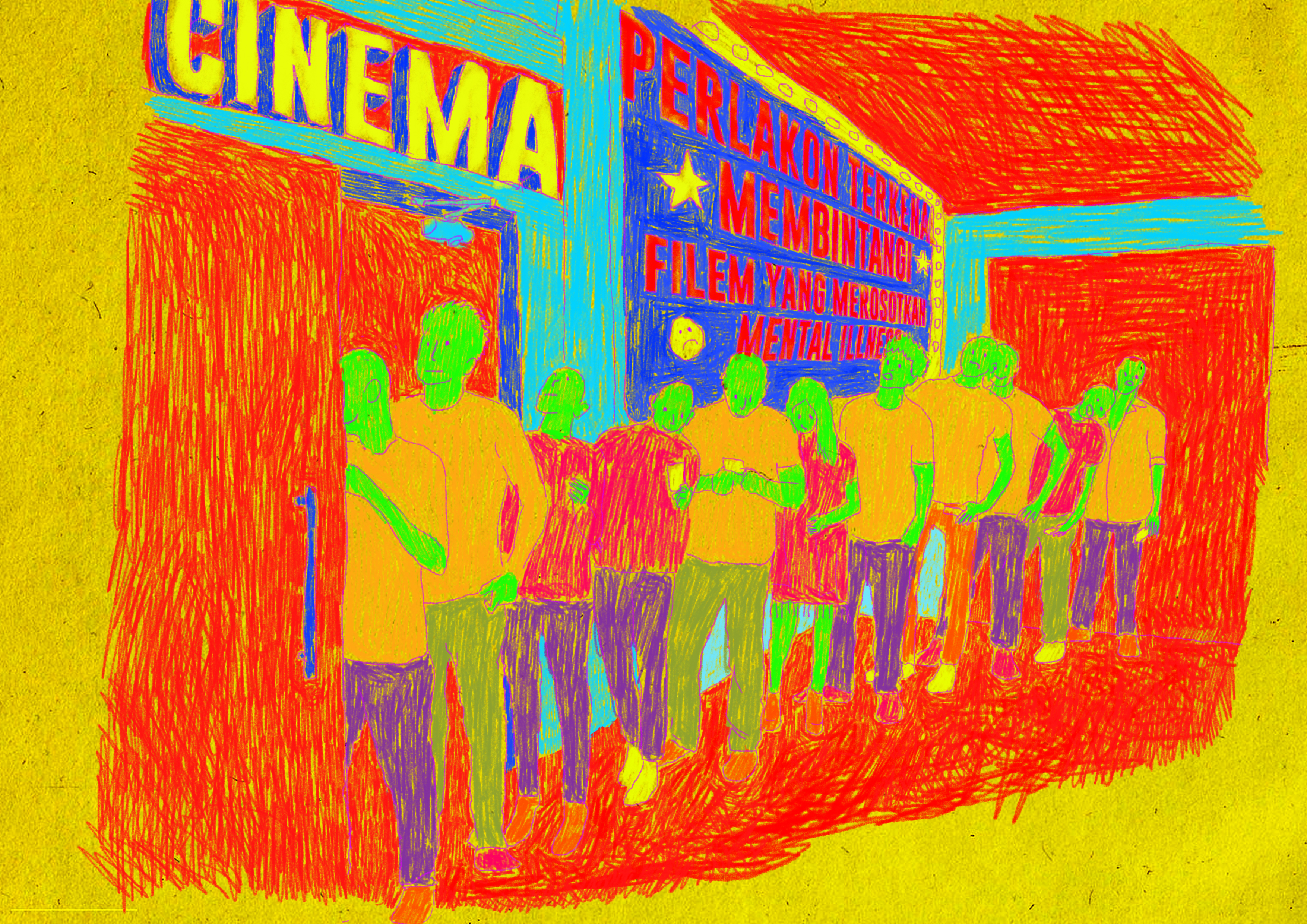
As for Howdy, he finds that the reason why employees feel distant from their employers when it comes to talking about their mental illness is because it is still considered taboo. There’s a stigma that is often portrayed in mainstream media that having mental illness is considered “psycho” or “gila”. He believes that the government body that dictates the kind of content showed in films, shows and other media should improve on their knowledge towards mental illness and stop perpetuating harmful messages.
“No matter how hard we try, mental illness will still be tied to our culture and our culture thinks it’s evil.” – Murad Johnson
However, drugs and alcohol are not just limited to working adults. It also, unfortunately, affects youngsters who are still in university and even high school.
For respondents Anastasia and Rya, they find that lecturers and teachers are less accommodating than they should be when it comes to monitoring and improving the mental state of their students. Their emotions are usually the subject of judgement and gossip and the only advice they managed to provide was “to take a nap.”
“We learn about space in school but not even 1 in 1,000 students will become an astronaut. We don’t learn about mental illness in school but at least 1 in 10 students has it. It’s not realistic.” – Howdy

The subject of mental illness, drug abuse and alcohol dependency is often not emphasised within school syllabus in Malaysia.
Respondent Howdy finds it unrealistic that students learn how to dissect frogs but they don’t learn about anxiety and panic attacks and how to curb it. To him, depression is often categorised into one general box. When someone says they’re depressed, people always assume that that person is just extremely sad and crying all the time. But sometimes, depression doesn’t make you cry, it just doesn’t make you do anything at all.
Do you find the hotlines and outlets in Malaysia that deal with substance abuse to be helpful?
According to respondents, inadequacies regarding this matter revolves around Malaysia’s rehabilitation facilities.
After being admitted multiple times, Murad Johnson believes that there is no comfort to be had in these places. Instead, he just felt more guilt than when he first checked-in. He believes we’re just not culturally equipped with handling mental illness. It’s tied to our culture and for as long as he can remember, mental illness has been a taboo subject. Despite the modernisation, some still believe it has strong roots to evil and demons.

According to Howdy, majority of the anti-drug posters and campaigns always focus on how recreational and psychoactive drugs can cause addiction. But to him, society does not discuss how pharmaceutical drugs prescribed to us by licensed doctors can cause addiction as well.
As a society, we need to read more about the effects of drugs and not just the ones the media deems to be scary and harmful. He hopes that maybe down the road, hospitals and psychiatric treatment facilities will adapt and adopt different ways of dealing with mental illness.
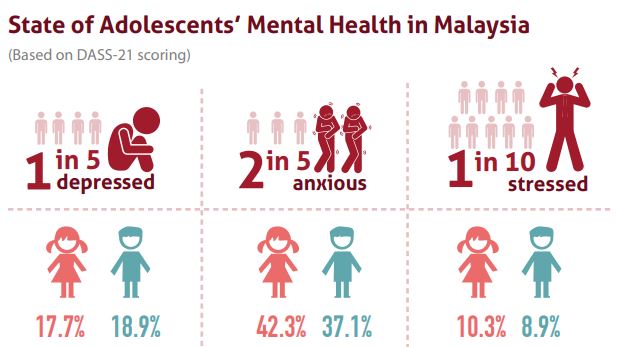
The increase of drugs and alcohol dependency is closely tied to the decline of mental health within youths in Malaysia due to the pandemic. In 2020, according to the National Health and Morbidity Survey, 3 out of every 10 adults aged 16 and over will suffer from mental illness, making it the second most common health problem after heart disease.
With that, there has been an unsettling upsurge in suicides and with Malaysia’s archaic law of punishing those who attempt suicide, it’s not hard to see why the community is less trusting of the government’s capability to handle mental health problems.
To illustrate, over 4,142 calls were made to Befrienders during the first MCO and a third of the calls were suicidal in nature.
A study of the psychological impact of Covid-19 was even done on over 900 university students in Malaysia which showed that 20.4%, 6.6%, and 2.8% experienced minimal to moderate, marked to severe, and most extreme levels of anxiety. EMIR Research Quarterly Poll which was conducted during the third quarter of this year found that 72% of Malaysians were worried over their mental health.
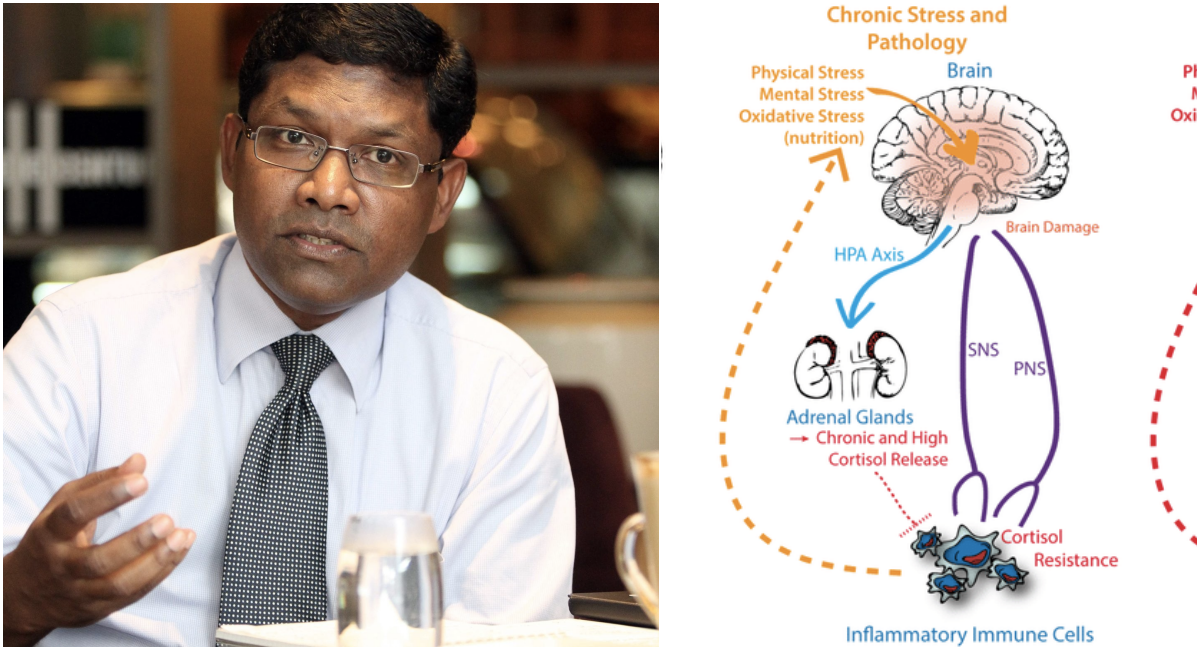
While fighting the Covid-19 pandemic, many youths in Malaysia are simultaneously fighting their own demons. While drugs, alcohol and mental illness affect the psyche, the body suffers deterioration as well. According to Malaysian Mental Health Association’s (MMHA) president, Dr Andrew Mohanraj,
“When we’re stressed the immune system’s ability to fight off antigens is reduced. This is why we are susceptible to infections. Stress induces chronic immune activation seen in chronic inflammatory diseases such as rheumatoid arthritis.”
He also noted that there has been a “more than a two-fold increase” in patients seeking counselling during the pandemic. Despite the numerous calls for better monitoring and prioritisation of mental illnesses, the budget specifically for mental health is only RM344.82 million which is only one percent of the overall national health budget.
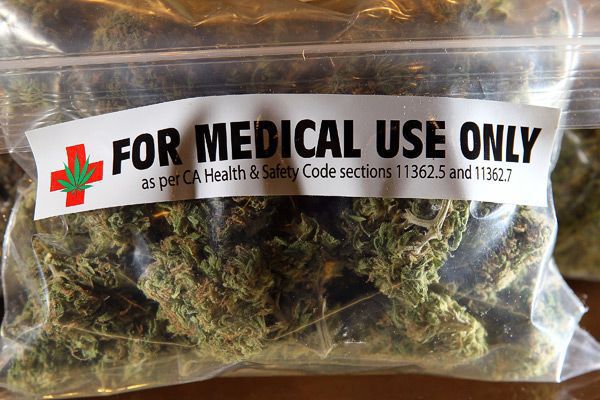
Straying away from pharmaceuticals, respondents resorted to herbal alternatives such as cannabis and marijuana to ail their mental health issues.
Largely considered the most divisive topic in Malaysia, the use of this herb has been debated for years and only recently has there been action in order to progress towards decriminalising the plant. NGOs such as Malaysia Society of Awareness (MASA) have dedicated themselves to the fight as well as into educating the masses of the benefits of cannabis, thus dispelling the misconceptions and stigmas behind it.
As mentioned prior, the main issue that has been hindering Malaysia from speaking about drugs and alcohol is fear.
A result of the endless fear-mongering that has been inculcated in us since primary school, many Malaysians are afraid to speak up about their experiences. Even after actively seeking help, respondents were still subjected to judgement and scrutiny by professionals due to the strong grasp Malaysians have on culture.

With mental health issues vilified in Malaysian mainstream media and drugs and alcohol romanticised in trashy action flicks to show delinquency, the community is more susceptible to these harmful messages therefore preventing change and improvement from happening.
Malaysia is in dire need of safe spaces to express these issues. Instead of weaponising drug dependency as a means to scare youths, it should be treated as a health issue similar to all other illnesses that could potentially exacerbate the body and mind. With that, individuals who suffer from dependency can seek help without feeling like a monster to society as depicted in films and other media.
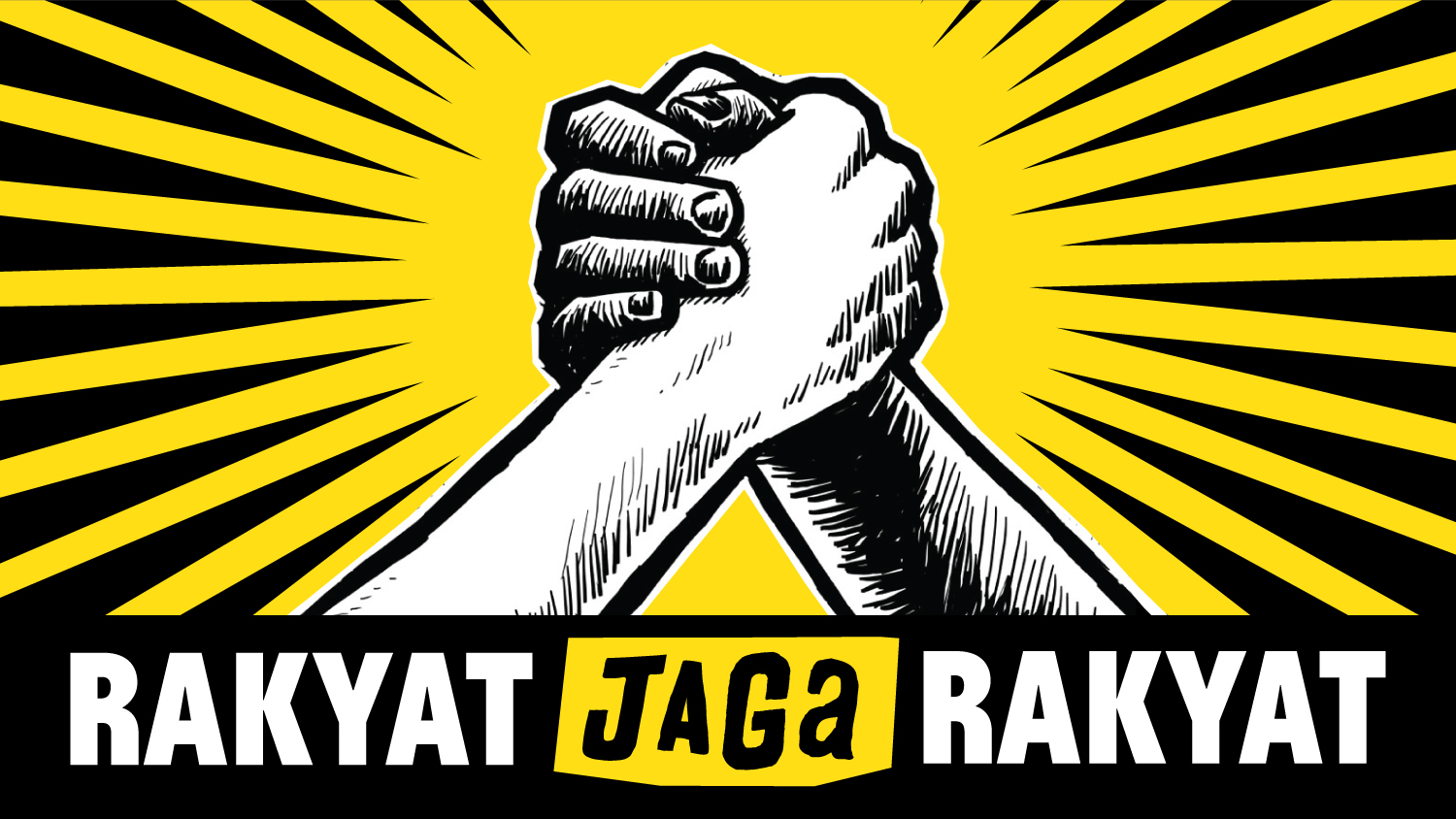
In a climate where the #RakyatJagaRakyat mantra is being thrown about haphazardly, it should be a priority to check-up on our loved ones and support each other through difficult times, even if the cause of their troubles might feel foreign to you.
Decriminalisation of cannabis, eradication of substance abuse, expansion of resources towards drug education and mental health are all integral factors in our path towards a healthier Malaysia. With continuous effort from the public on spreading the message and calling for action, change may peek its head from beyond the horizon.
Huge thanks to the respondents of this article for lending their voices. May it lead to change.


 Get Audio+
Get Audio+ Hot FM
Hot FM Kool 101
Kool 101 Eight FM
Eight FM Fly FM
Fly FM Molek FM
Molek FM